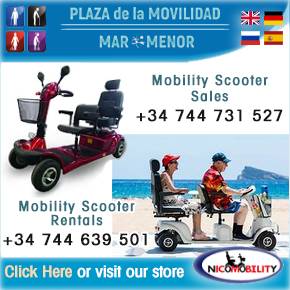- Region
- Vega baja
- Marina Alta
- Marina Baixa
- Alicante
- Baix Vinalopo
- Alto & Mitja Vinalopo
-
ALL TOWNS
- ALICANTE TOWNS
- Albatera
- Alfaz Del Pi
- Alicante City
- Alcoy
- Almoradi
- Benitatxell
- Bigastro
- Benferri
- Benidorm
- Calosa de Segura
- Calpe
- Catral
- Costa Blanca
- Cox
- Daya Vieja
- Denia
- Elche
- Elda
- Granja de Rocamora
- Guardamar del Segura
- Jacarilla
- Los Montesinos
- Orihuela
- Pedreguer
- Pilar de Horadada
- Playa Flamenca
- Quesada
- Rafal
- Redovan
- Rojales
- San Isidro
- Torrevieja
- Comunidad Valenciana
Date Published: 14/08/2025
Alicante and the used car market online: What to check before signing
This is the important feature you need to know about online second-hand car sales

Buying a used car online saves time, avoids unnecessary travel and allows you to compare dozens of models with just a few clicks. Digital platforms dedicated to vehicle sales simplify each phase, from the initial search to contacting the seller, often including added guarantees and delivery services. In Spain, 62% of used car buyers begin their search online, and over 40% complete the entire purchase process digitally, according to a 2024 report by Ganvam (Asociación Nacional de Vendedores de Vehículos a Motor).
This growing reliance on digital channels is particularly relevant for those searching for used cars in Alicante. Local and national platforms provide tools to view vehicles available in the province, complete with detailed photos, technical specs and maintenance history. Even nationwide services such as Clicars offer advanced filters and complete listings to help users select vehicles that match specific needs.
Despite the clear advantages, it’s essential to pay attention to the transparency of listings and the reputation of the seller. Certified documentation, verified mileage and access to post-sale assistance are key factors in distinguishing a reliable offer from a risky one. Before completing the purchase, it’s advisable to check whether independent mechanical reports are available or at least a condition statement signed by a professional operator.
How to evaluate a used car before buying
Choosing a used car involves more than just price or appearance. Proper evaluation means examining the vehicle’s technical specifications, mechanical condition and documentation reliability. A low mileage figure, for instance, is only meaningful if supported by a full maintenance history. The service booklet, inspection reports and any logged repairs are essential for understanding whether the car has experienced abnormal wear or major structural repairs.
Another crucial aspect is the presence of a warranty. The most reliable platforms clearly state the duration and conditions of any coverage provided. This is particularly important when purchasing remotely, where direct inspection is not possible. In many cases, the platforms also include a technical assessment report, allowing buyers to make informed decisions without an in-person check.
Verifying the seller’s identity, the number of previous owners and the absence of administrative issues (such as liens or registration blocks) is a critical part of the process. This information should be available before signing the contract ideally consolidated within the vehicle’s listing page.
Delivery, ownership transfer and local taxation
Once the right vehicle is identified, it’s important to understand the practical procedures required to complete the purchase. In Spain, vehicle ownership transfers are registered with the Dirección General de Tráfico (DGT) and include the payment of the Impuesto de Transmisiones Patrimoniales (ITP), calculated on the vehicle’s declared value. In the Valencian Community, the standard rate for used car sales between private individuals is 6%, unless local exemptions or adjustments apply. The buyer is responsible for both the tax payment and the official registration of ownership.
As for delivery, many digital platforms offer the option to have the vehicle delivered directly to your specified address, sometimes with transportation costs included in the price. This is especially helpful for those living in less central areas or those unable to travel to meet the seller. Delivery times depend on logistics and distance but generally fall within 5 to 7 working days.
Finally, insurance costs must be considered, as coverage is mandatory by law. Before the car can be driven, it must be covered by at least third-party liability insurance. Some sellers provide temporary insurance packages valid for the first few days, but it’s always advisable to request quotes from multiple providers to choose the most suitable plan based on the owner’s profile and intended vehicle use.
Buying a used car in a conscious and informed way – even through online platforms – is entirely feasible today, as long as every detail is checked before signing and local procedures are clearly understood.
Contact Murcia Today: Editorial 000 000 000 /
Office 000 000 000
































